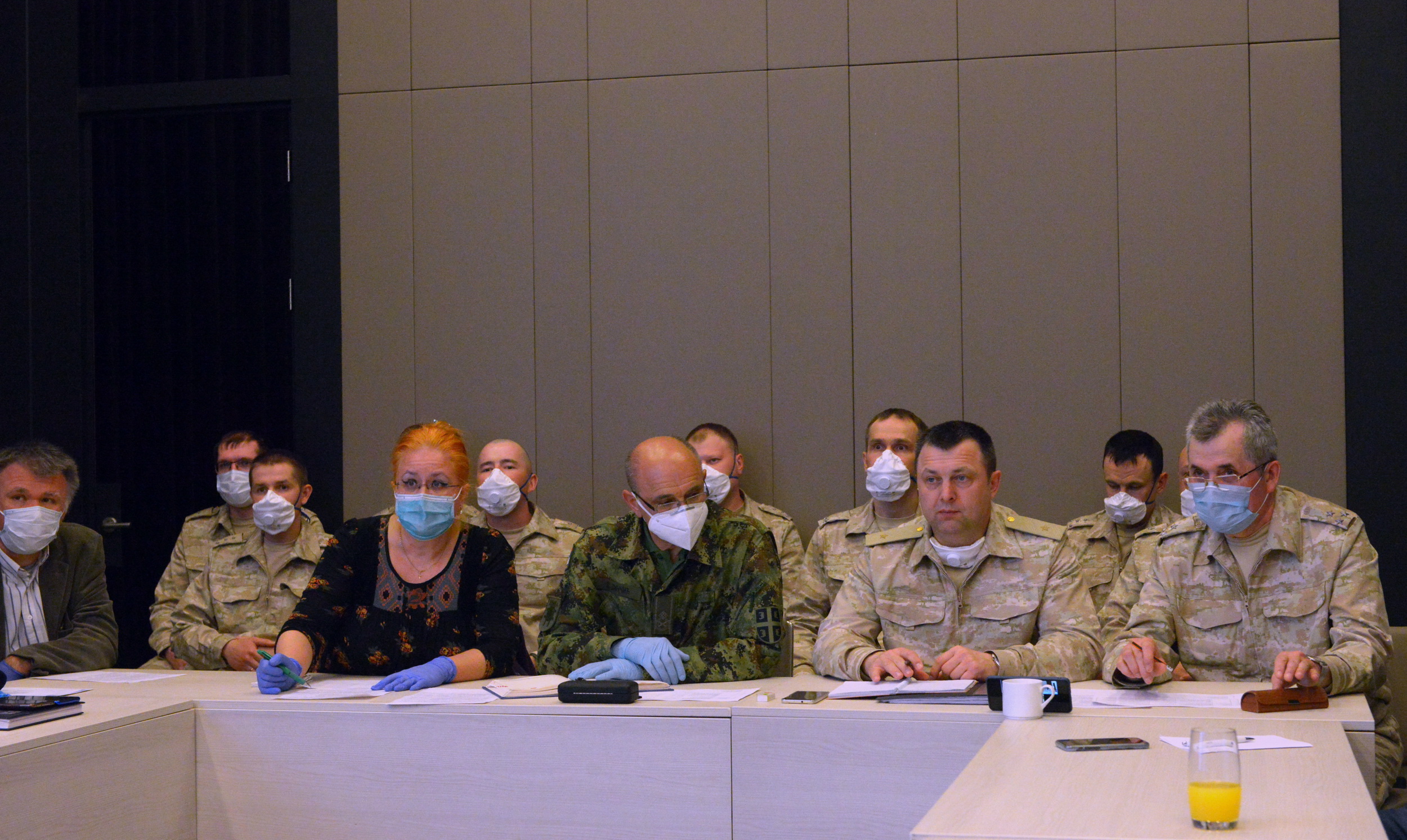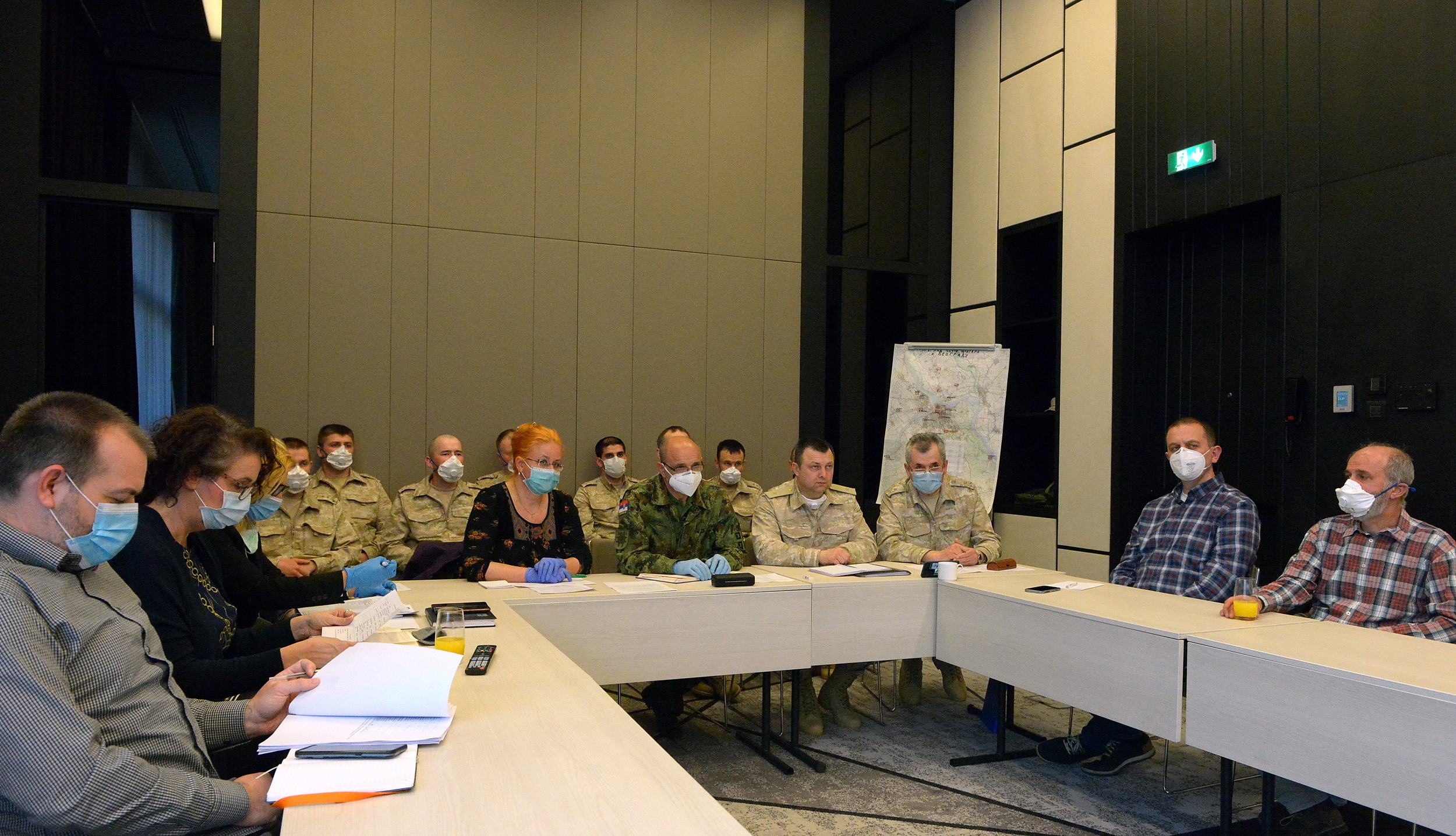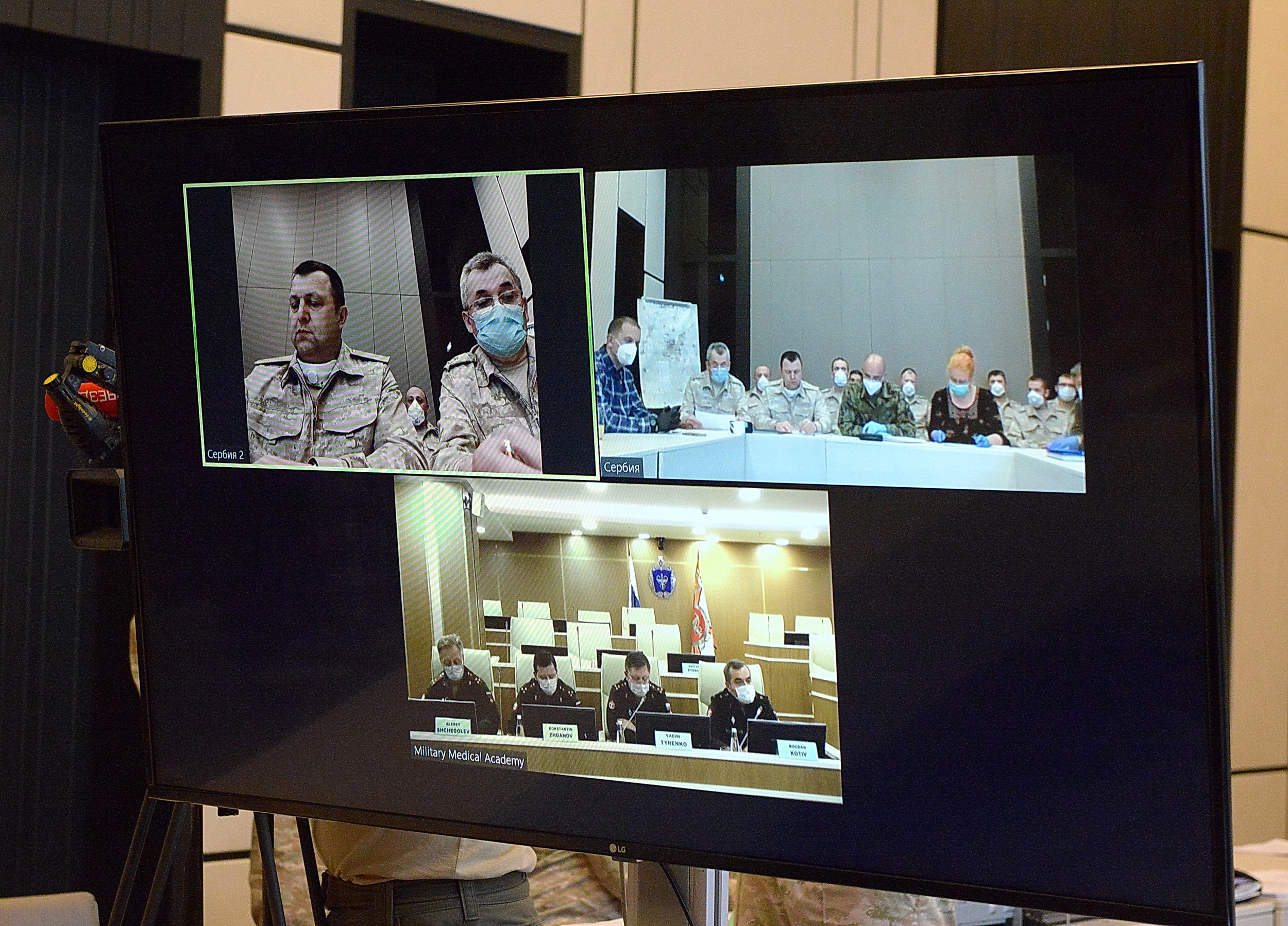22.04.2020.
Video conference of the Serbian and Russian medical teams
Representatives of the military and civilian health care institutions in the Republic of Serbia and the members of the medical team of the Armed Forces of the Russian Federation engaged in preventing the spread of the coronavirus infection in our country have spoken today via video link to the members of Russian medical teams engaged in the Russian Federation and the Republic of Italy.
 The conference was attended by the coordinator of the Team for medical cooperation with the Armed Forces of the Russian Federation, Brigadier General Dragan Dinčić, Chief Medical Officer of the Russian Armed Forces engaged in Serbia, Colonel Rustam Aminyev, representatives of the military health care, Clinic for Infectious Diseases of the Clinical Centre of Serbia and the “Batut” Institute.
The conference was attended by the coordinator of the Team for medical cooperation with the Armed Forces of the Russian Federation, Brigadier General Dragan Dinčić, Chief Medical Officer of the Russian Armed Forces engaged in Serbia, Colonel Rustam Aminyev, representatives of the military health care, Clinic for Infectious Diseases of the Clinical Centre of Serbia and the “Batut” Institute.The topics of today’s discussion were experiences and impressions while preventing the spread of the coronavirus infection, as well as mutual cooperation.
General Dragan Dinčić thanked the representatives of the Armed Forces of the Russian Federation for coming to assist Serbia in these difficult times.
- Assistance in the epidemiological sense and the assistance in the disinfection of numerous facilities are very important to us. Since they arrived in Serbia 18 days ago, Russian expert teams have disinfected half a million square meters of areas in our country, about 65 different facilities, most of them Covid hospitals. I emphasize that today's video conference with professors of the Military Medical Academy in Saint Petersburg, representatives of the Military Medical Academy in Belgrade and colleagues from civilian health care system, primarily from the Clinic for Infectious Diseases of the Clinical Centre of Serbia and the “Batut” Institute, significantly helped to resolve many issues, because our opinions about a number of expert questions matched, but there were also some dilemmas - General Dinčić pointed out.
 Colonel Rustam Aminyev emphasized that medical experts and groups of doctors were in all parts of Serbia, visited numerous hospitals, medical institutions and health centres involved in the treatment of coronavirus infection.
Colonel Rustam Aminyev emphasized that medical experts and groups of doctors were in all parts of Serbia, visited numerous hospitals, medical institutions and health centres involved in the treatment of coronavirus infection.- Doctors participated in making diagnosis and the treatment of patients in the most difficult stage, who are on respirators, and epidemiologists participated in the introduction of anti-epidemic measures in Covid hospitals. I am convinced that their knowledge was useful. Based on the situation in the field, we made decisions about the extent and order of disinfection according to the degree of urgency. I would also like to point out that the cooperation with the medical staff was "in the same language" and that we had fruitful cooperation - said Colonel Aminyev.
Assistant Professor Ksenija Bojović, an infectologist at the Clinic for Infectious Diseases of the Clinical Centre of Serbia, expressed her great pleasure at attending today's video conference.
 - It is my pleasure to have the opportunity to exchange first impressions and experiences about the new disease in the conversation with our Russian colleagues. This is very valuable, because we have numerous clinical dilemmas on a daily basis, since no clinical protocol has so far been proven to be absolutely reliable and verified as the right one. We, clinicians, face with a dilemma on a daily basis - whether we are doing right or wrong and whether someone else knows more than we do. The opportunity to exchange experiences not only with them, but also with colleagues from China and Italy, has contributed to the fact that not only infectologists, but all health care professionals have successfully fought against this infection so far - said Assistant Professor Bojović
- It is my pleasure to have the opportunity to exchange first impressions and experiences about the new disease in the conversation with our Russian colleagues. This is very valuable, because we have numerous clinical dilemmas on a daily basis, since no clinical protocol has so far been proven to be absolutely reliable and verified as the right one. We, clinicians, face with a dilemma on a daily basis - whether we are doing right or wrong and whether someone else knows more than we do. The opportunity to exchange experiences not only with them, but also with colleagues from China and Italy, has contributed to the fact that not only infectologists, but all health care professionals have successfully fought against this infection so far - said Assistant Professor BojovićIn April, Russian medical teams in Serbia conducted an analysis of the epidemiological situation and consulted with their Serbian colleagues for detailed information about the health situation, and then provided medical assistance to coronavirus patients. They made 103 visits, gave their expert opinion, and often helped our doctors with their work. The Russian military experts were divided into eight medical teams, and each team had a general practitioner, an epidemiologist, an anaesthesiologist, a medical technician and an interpreter.




